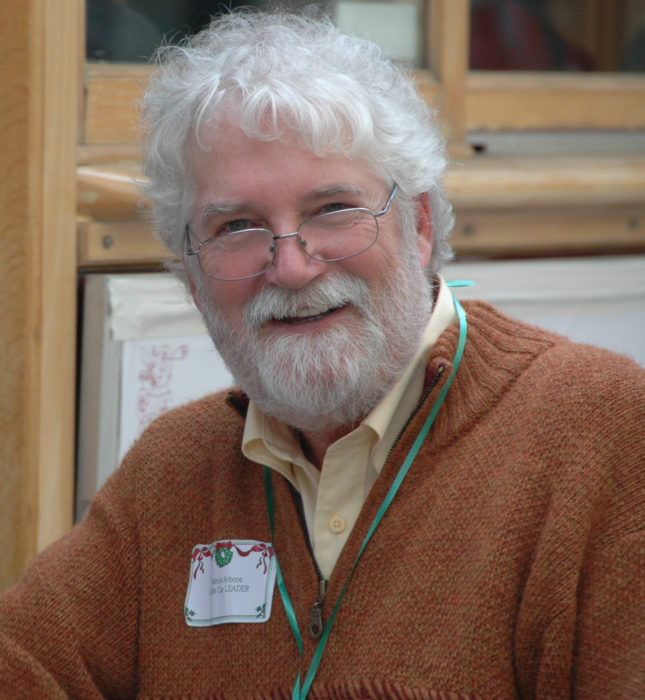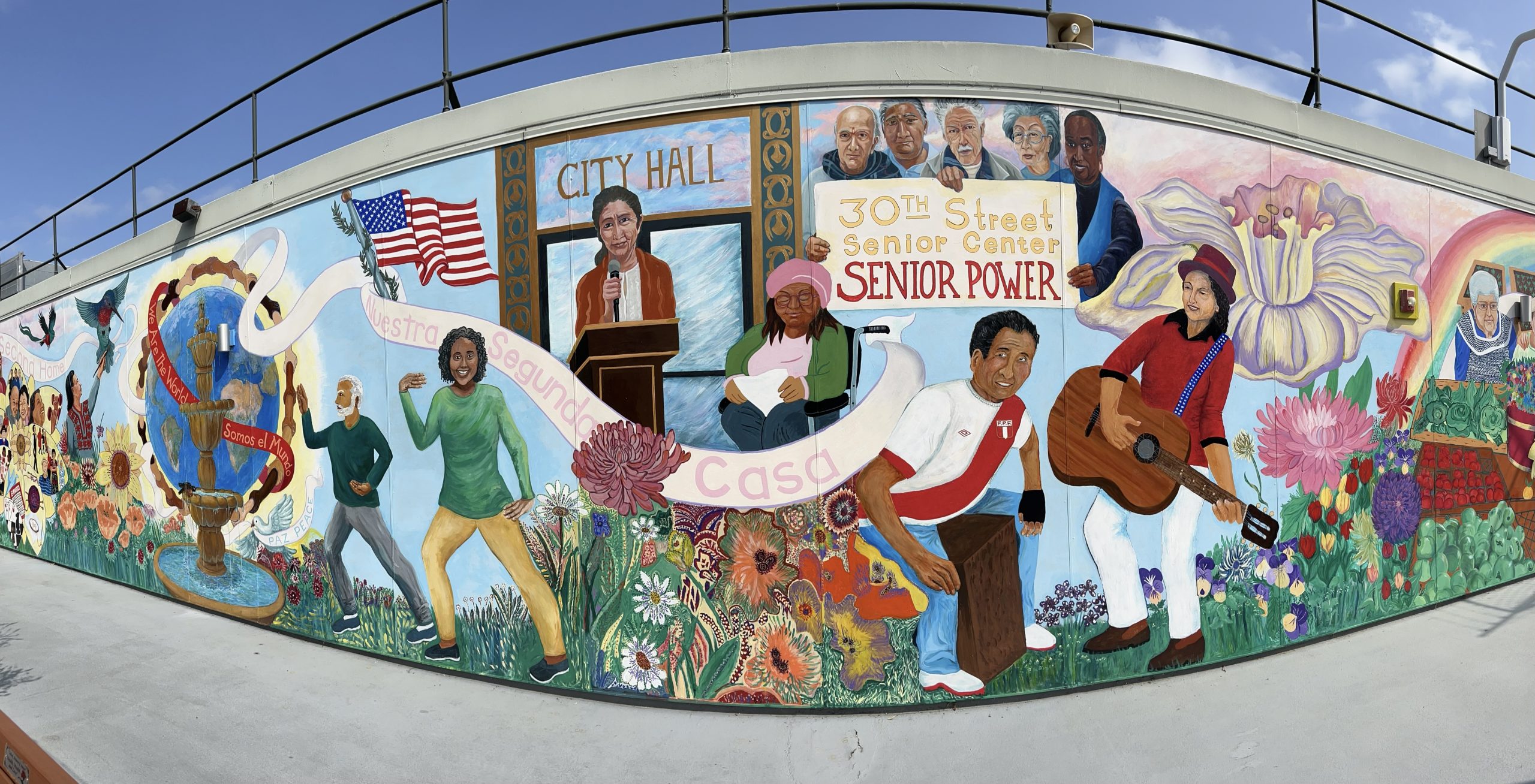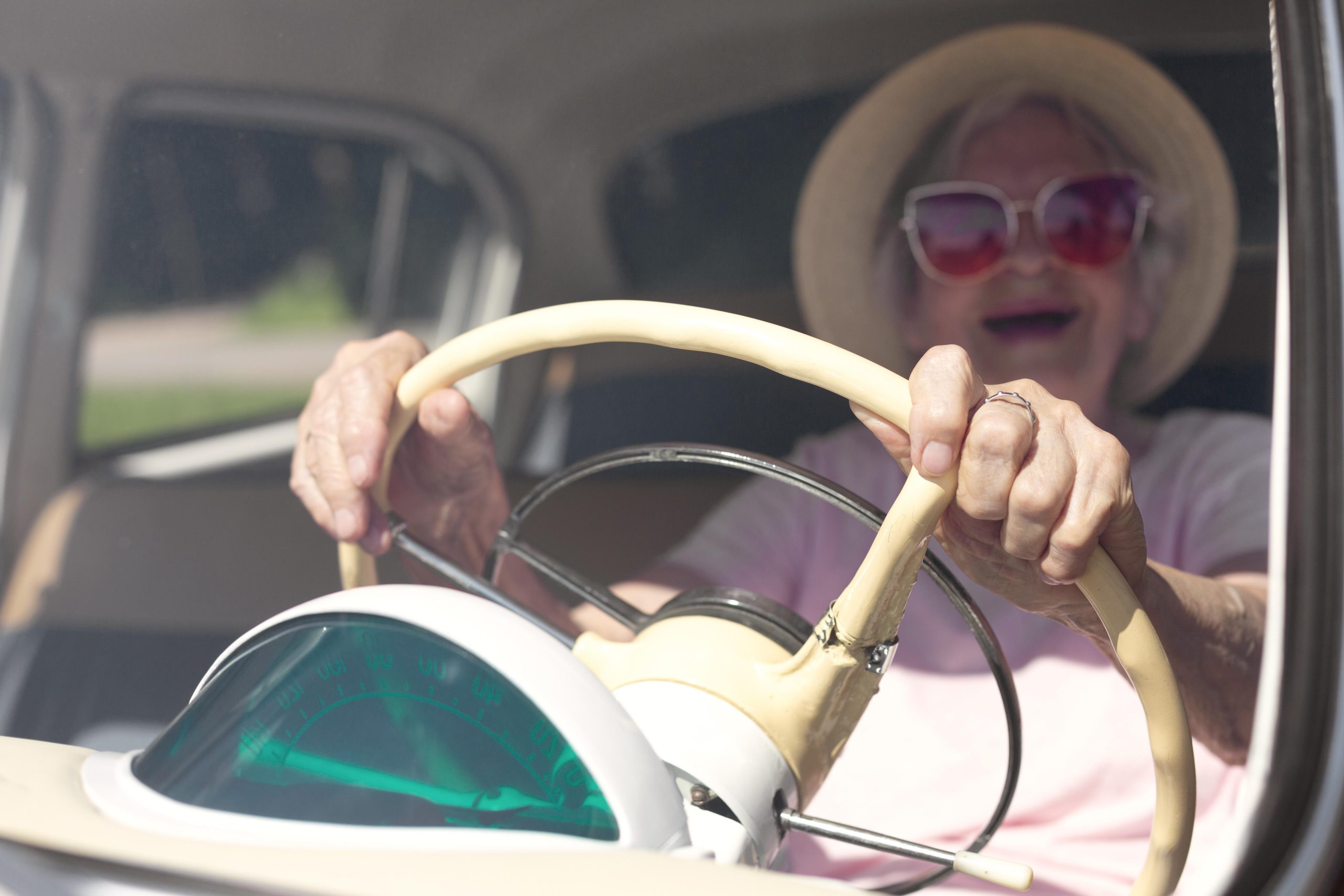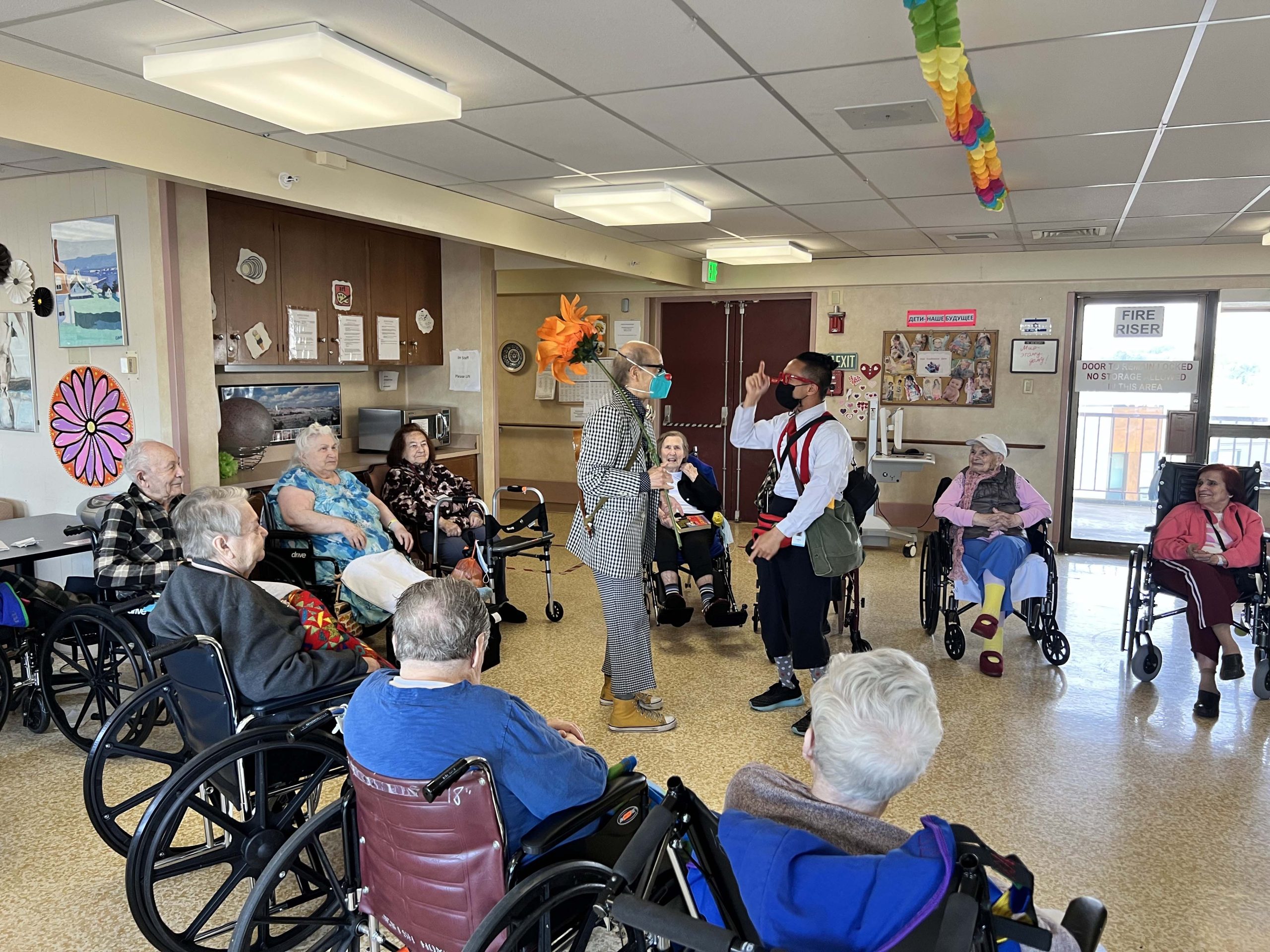Lonely or troubled seniors find support, companionship on the Friendship Line
Eva was 80 when she called the Friendship Line. She was agitated. She believed her daughter wanted to take control of her finances and put her in a nursing home.
Her daughter had begun calling her on a regular basis, insisting she move to Southern California to live with her. Yet they had been estranged for over 20 years.
When asked how she handled those calls, Eva (not her real name) responded, “I drink a lot.”
That concerned the volunteer, who asked if the Friendship Line could check in with her on a daily basis. Daily or frequent wellness checks provide the emotional support that can prevent an issue escalating into a crisis. Over time, volunteers gently urged Eva to speak with her primary care physician about her fears and increasing reliance on alcohol.
She did eventually and was referred to a psychiatrist, who assessed her for depression and began treatment. He also prescribed attendance at 12-Step Alcoholics Anonymous meetings. The combination of treatment and support helped Eva drink less and gain the confidence to tell her daughter not to contact her anymore. For the next seven years, she lived a relatively comfortable life until she died from a stroke at the age of 89.
Serving the nation since 1973.
When older adults call suicide lines, it’s typically because they are lonely or depressed not contemplating killing themselves, said Patrick Arbore, a specialist in elderly suicide and grief. That prompted him to create the Friendship Line in 1973. He is currently director of the Institute on Aging’s Center for Elderly Suicide Prevention, which he founded in 1995.

One reason for the low number of suicide calls from older adults, Arbore said, is that society – and seniors themselves – view sadness and depression as a normal aspect of aging. Not wanting to be a burden on friends or family, they are often reluctant to reach out for emotional support.
“While young people may say, ‘I want to die,’ older adults are more likely to say, ‘There’s no place for me,’or ‘I don’t want to be a burden’,” Arbore said. The person who answers the Friendship Line may be the only person the caller talks to all day.
The Friendship Line is the nation’s only 24-hour, 365 day-a-year, toll-free support line for older adults and adults living with disabilities. Trained volunteers handle most of the calls, though experienced staff are always available. They work out of IOA’s offices in San Francisco’s Richmond District.
Volunteers take calls from every state in the U.S. and some Canadian provinces. This year, they expect to handle around 180,000 calls, including 35,000 made by volunteers checking on people’s well-being, said Rae Marie Laguna, call center manager.
THE FRIENDSHIP LINE
1-800-971-0016
The majority of calls, 98 percent, are so-called “warm” calls from people not in crisis but troubled, depressed or simply without anyone else to talk to. “You may think it’s no big deal receiving a phone call,” Laguna said. “But it’s important for isolated seniors.”
While anyone can call the Friendship Line, there are some rules. Callers must be willing to talk with whomever answers the phone. And all but suicide calls are limited to 10 minutes and one per day.
‘This loneliness is too hard’
San Francisco has a suicide prevention hotline, which often refers older callers to the Friendship Line. But that’s still a small percentage of the calls the Friendship Line gets.
Stan (not his real name), a Filipino, was 75 when he made his first call. He was hesitant: “I’m just checking you out,” he said. The call lasted a few minutes and the volunteer urged him to call back. Several days later, he called again. He was ready to talk.
His wife had died suddenly a few weeks earlier. “I don’t want to go on. I want to end my life.” he said. He was thinking about jumping out the window of his fourth-floor apartment building. “I will die and won’t be in this pain anymore. This loneliness is too hard.” The couple never had children, and what family they had lived in the Philippines. “My wife and I only had each other. I can’t go on without her.”
But he agreed to receive regular wellness checks. When Arbore called one day, Stan told him he had decided to let nature take its course: “I am not thinking about killing myself. I look forward to the calls from the volunteers. I go to the senior center. I eat, sleep and take care of myself. This isn’t the life I wanted, but it is OK.”
The Friendship Line stayed connected with Stan up until his death, in his mid-80s.
Sometimes it’s simply a friend issue
Most of the calls are less weighted: People without connections or trying to make them is a frequent issue. One caller was upset over being rebuffed when she tried to befriend a neighbor. “That was hard, you must have felt really put off,” the volunteer responded. She did, she said. “I wanted a friend in my building.”
After discussing how she might approach another neighbor, the caller let out a rueful chuckle and said, “Well, at least I tried.”
On many occasions, particularly for those who are just lonely, conversations about favorite foods, movies and books can begin to establish a sense of connection. Even for callers who have difficulty maintaining a conversation.
Shirley Edelson, at 90 the oldest of the volunteers, recounted a call marked by long periods of silence. “After a while I said, ‘I like music. Do you like music?’ And the caller started whistling Fiddler on the Roof. I think she felt happier at the end of the call.”
Regrets are the hardest thing
Barbara Kate Repa, an attorney in senior law, views her time at the Friendship Line as the best part of her week. She’s been volunteering for five years. “The most challenging calls are when someone is sad, bereft and sobbing on the phone. Or when you hear, you’re the only person I talk to every day.
“The hardest thing for callers,” she said, “are their regrets, the shoulds they’re yoked by.” They cannot see their way forward. “I’ve learned that there’s a true difference between people who age well and those who get stuck. I hope I’m a better listener. I hope I’m more sensitive to meet people where they are.”
Marjorie Yasueda, a senior and former volunteer with Zen Hospice, said volunteers need to first accept that they can’t fix anything. “You have to give up any idea you know the right answer and just be able to listen to the callers’ stories. It’s important they know there’s somebody they can call … you need to know how to listen.”
Maria Olla, who at almost 50 is working on a Community Health Worker certificate through City College, is a new volunteer. She had devoted the past few decades to caring for her father, an 87-year-old veteran with dementia. “One of the things I learned from volunteering here is that as bad as I felt in my own moments of fear, depression, and loneliness – and there were many – there are people who live that reality 24 hours a day. It’s been extremely humbling.”
Volunteer Anna Yan wishes she had known about the Friendship Line when her husband died. “My family does not live in the area. Just calling the Friendship Line helps people feel more restored and nurtured. Everyone wants to be heard and valued, to know they’re worth someone else’s time.”
A lifeline and perhaps new friendships
It’s the call center manager who keeps the statistics. “We know we’re successful because we have so many repeat callers and the number of new callers keeps increasing,” said Laguna, an AT&T retiree who first joined the Friendship Line as a volunteer. Calls went up after the 2016 election, she noted.
Callers are expressing increased concern about healthcare, employment, their grandchildren’s futures. “A lot of our callers are 50+ and grandparents. Their own children are focused on their families; the grandparents don’t want to complain or make demands, but they do want to be able to call someone and let loose,” she said. “That’s what we’re here for. We offer empathy.”
In many cases, phone friendships can develop, she said. As volunteers over time learn about regular clients, callers ask questions and learn about the volunteers. “Callers tell us they love us, that we’re their lifeline.”
The Friendship Line hadn’t heard from one regular caller for a week when her daughter called. Her mother had died. “She thanked us for being there for her,” Laguna said. The woman’s mother had kept a list of Friendship Line volunteers she had spoken with and their conversations. “The Friendship Line was very important to her.”
Seeking older adults to volunteer
Six volunteers on typically on hand during office hours. There are currently 135 volunteers, 15 more than last year, but as the number of callers increases, “we need even more,” said Volunteer Coordinator Timothy Riel. Those interested can call him at 415-750-4136.
Volunteers are mainly recruited from area universities, but they’re looking to sign on more older adults. Students have schedule limitations, and by age less experience. Older callers sometimes feel more comfortable speaking with someone closer to their own age, who might have a greater understanding of their issues.
Students in the human services come with useful skills and some knowledge of issues affecting seniors. But everyone working the Friendship Line gains new awareness and understanding, Riel said. They notice older adults more than they did before and make an effort to say hello.
Countering ageism, for seniors of the future
Arbore is responsible for most of the training. No particular academic background is necessary. What’s most important, said Arbore, is caring specifically about older adults. “Over the years, I have found that generic volunteers (those who say they can work with any age population) do not last long.”
One of the jobs of training is to counter ageism, often hard to recognize because it’s woven indelibly into the fabric of our unconscious, Arbore said.
“Ageist attitudes prevent us from really ‘being with’ older callers, rather than ‘doing something’ to them. I want volunteers to be able to grow older gracefully themselves; to treat their older parents and loved ones with respect,” he said. “I encourage them to learn from the older callers for we all will be old one day.”





